Winners and losers of the debt ceiling deal
Biden and McCarthy have finally reached an agreement. Who comes out on top?


A free daily email with the biggest news stories of the day – and the best features from TheWeek.com
You are now subscribed
Your newsletter sign-up was successful
President Biden and House Speaker Kevin McCarthy (R-Calif.) reached a tentative deal on raising the nation's $31.4 trillion debt limit, giving Congress time to pass it before June 5, when the Treasury Department will start running short of money to cover all its obligations. If lawmakers approve it, the nation will avoid a catastrophic and unprecedented default.
The proposed agreement would lift the borrowing limit for two years, until after the 2024 election, and cap non-defense discretionary spending at $704 billion for fiscal 2024. That's more than House Republicans wanted; they had called for returning to the $689 billion spending level of 2022. But it's significantly below the previously projected 2024 baseline of $757 billion. The White House said the two-year deal, if it gets through Congress, would lower spending by about $1 trillion over 10 years. House Republicans estimate it would cut spending by $2.1 trillion if suggested budget caps were extended for another four years.
The tentative deal also would add work requirements for food stamps for adults 50 to 54 by 2025 but eliminate those requirements for veterans, homeless people, and young people leaving foster care. It also would redirect up to $20 billion from the $80 billion Biden and congressional Democrats allocated to the IRS last year to go after wealthy tax cheats, modernize aging technology, and improve customer service. Can one side claim victory, or would this be a win for all?
The Week
Escape your echo chamber. Get the facts behind the news, plus analysis from multiple perspectives.

Sign up for The Week's Free Newsletters
From our morning news briefing to a weekly Good News Newsletter, get the best of The Week delivered directly to your inbox.
From our morning news briefing to a weekly Good News Newsletter, get the best of The Week delivered directly to your inbox.
Republicans remained (mostly) united
This deal "is a significant victory" for Republicans, said The Wall Street Journal in an editorial. Veterans win, too, because the agreement provides a bigger share of the "discretionary pot" for their health care. The Pentagon also got a boost, because the "GOP resisted the Democratic demand for parity between defense and social-welfare spending," so defense spending will increase by about 3% in fiscal 2024 and rise again the next year. And Republicans advanced their priorities "in return for raising the debt ceiling that had to be raised anyway." This plan isn't perfect, and it faced last-minute opposition from a handful of hard-line conservatives, but so much for "the Democratic narrative that Republicans can't govern."
And taxpayers come out on top
Taxpayers also scored some wins, said the Boston Herald in an editorial. To Biden and his fellow Democrats, "taxpayers are ATMs," and this administration's "trillion-dollar-plus spending spree helped fuel inflation," while threatening "budget issues down the line as the bills come due." Republicans didn't stop as much of this spending as they wished, but they "did manage to swerve around one big fiscal pothole: student loan payments." The deal ends Biden's student-loan payment pause this summer, saving American taxpayers $5 billion a month. Another element that is "particularly vexing to progressives" but good for the nation's finances is that, provided Congress approves the deal, "food and health care programs would now come with work requirements." The plan makes "some inroads in treating taxpayers as more than just walking wallets."
Biden blocked the GOP's 'outrageous' demands
"It's hard to conceive of an outcome more favorable to Biden," said Jennifer Rubin in The Washington Post. Remember, when this showdown started the Republican House Freedom Caucus was threatening to let the government default on its debts unless it got the president to cave on "repealing much of the Inflation Reduction Act (including eliminating $80 billion in new funds for the Internal Revenue Service), capping nondefense spending at fiscal 2022 levels for a decade and blocking Biden's $400 billion proposed student debt relief. None of that happened." Instead, Biden blocked the GOP's "outrageous demands, kept his spending agenda and tax increases intact and got his two-year debt limit increase," all while stoking dissension "on the GOP side as the extreme MAGA wing denounces the agreement."
But McCarthy got away with 'one-sided bargaining'
The deal is a setback for anyone who believes in "fiscal discipline," said The New York Times in an editorial, thanks to the "one-sided bargaining" that allowed McCarthy to refuse "to truly entertain any of the Democrats' proposals to raise revenue." The deal didn't touch the 2017 Trump tax cuts, "which added $1.8 trillion to the deficit through 2029 for the benefit of corporations and the wealthy." It also left in place the "carried-interest loophole, which benefits hedge-fund managers and private equity funds," and allowed the Pentagon to grow while "shortchanging many important investments in education, housing, infrastructure and disease prevention." "A much more responsible form of fiscal discipline is to collect the taxes that are owed, to make considered spending cuts where appropriate and to reverse tax cuts that solely benefit the wealthy."
A free daily email with the biggest news stories of the day – and the best features from TheWeek.com
Harold Maass is a contributing editor at The Week. He has been writing for The Week since the 2001 debut of the U.S. print edition and served as editor of TheWeek.com when it launched in 2008. Harold started his career as a newspaper reporter in South Florida and Haiti. He has previously worked for a variety of news outlets, including The Miami Herald, ABC News and Fox News, and for several years wrote a daily roundup of financial news for The Week and Yahoo Finance.
-
 Political cartoons for February 21
Political cartoons for February 21Cartoons Saturday’s political cartoons include consequences, secrets, and more
-
 Crisis in Cuba: a ‘golden opportunity’ for Washington?
Crisis in Cuba: a ‘golden opportunity’ for Washington?Talking Point The Trump administration is applying the pressure, and with Latin America swinging to the right, Havana is becoming more ‘politically isolated’
-
 5 thoroughly redacted cartoons about Pam Bondi protecting predators
5 thoroughly redacted cartoons about Pam Bondi protecting predatorsCartoons Artists take on the real victim, types of protection, and more
-
 Musk: What did he achieve in Washington?
Musk: What did he achieve in Washington?Feature Elon Musk leaves his government job but not after bruising his image, slashing aid and firing thousands
-
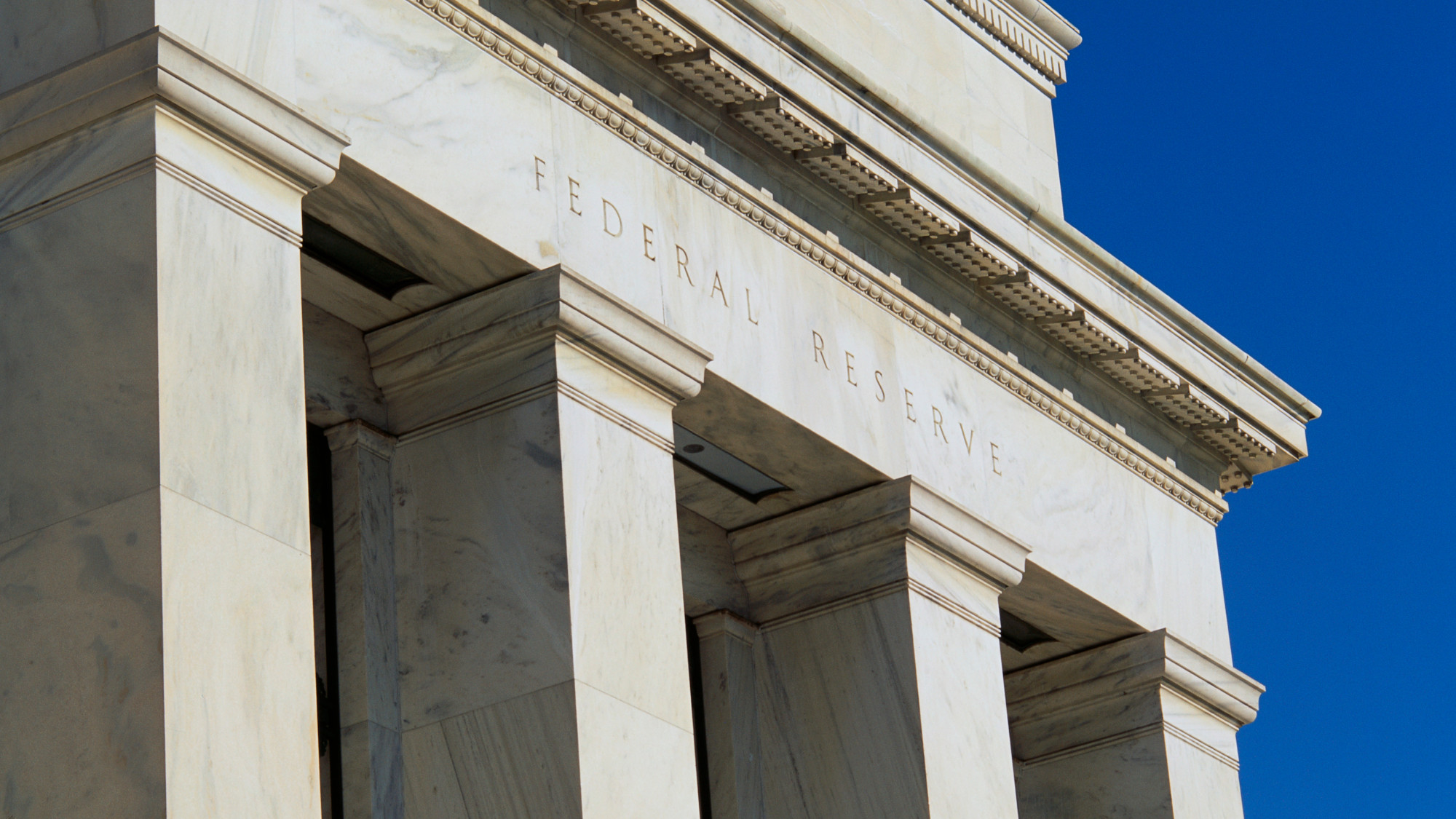 National debt: Why Congress no longer cares
National debt: Why Congress no longer caresFeature Rising interest rates, tariffs and Trump's 'big, beautiful' bill could sent the national debt soaring
-
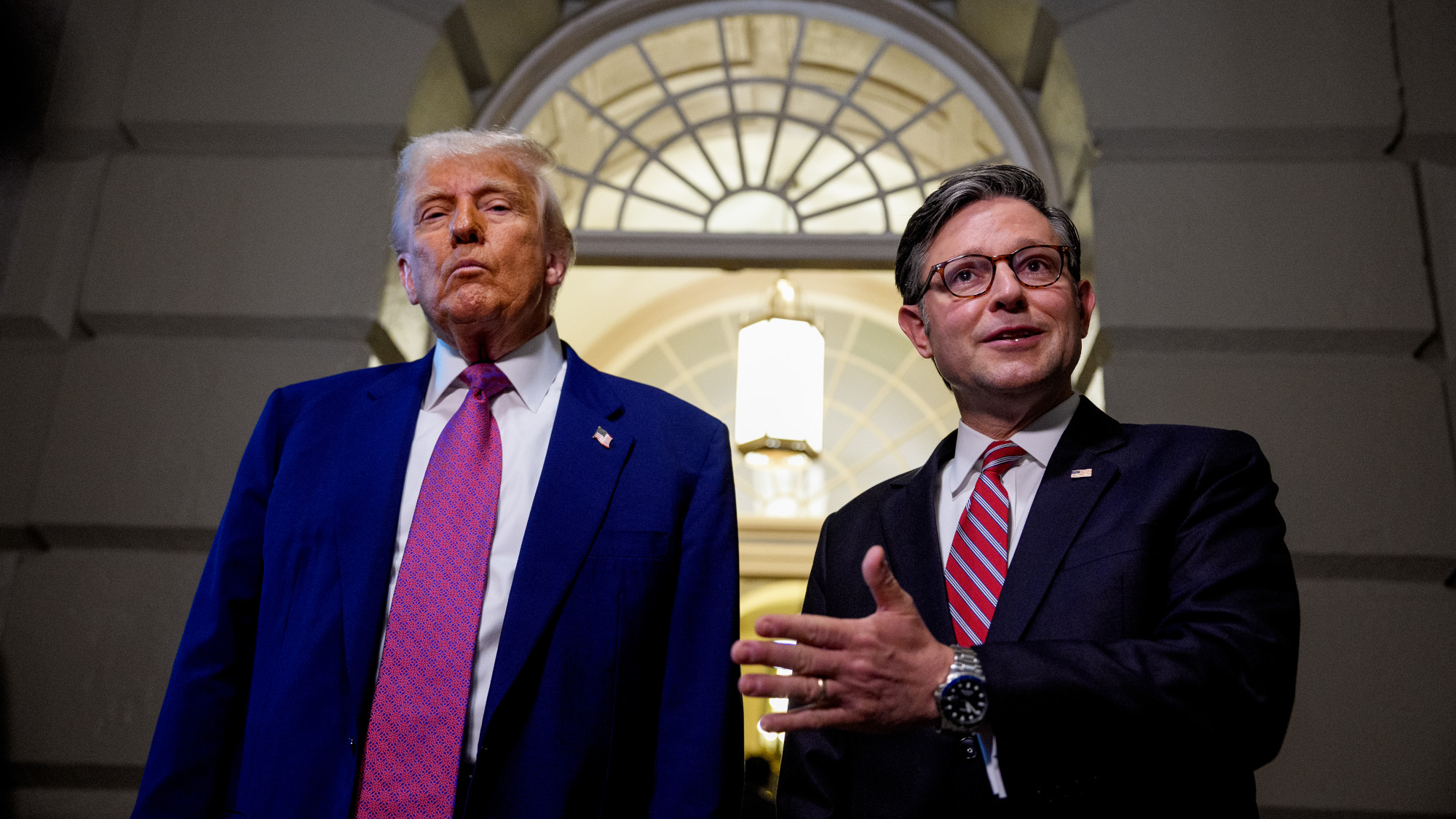 House GOP pushes ahead on deficit-boosting tax bill
House GOP pushes ahead on deficit-boosting tax billFeature Republicans push a bill that will lock in Trump's tax cuts, cut Medicaid and add trillions to the national debt
-
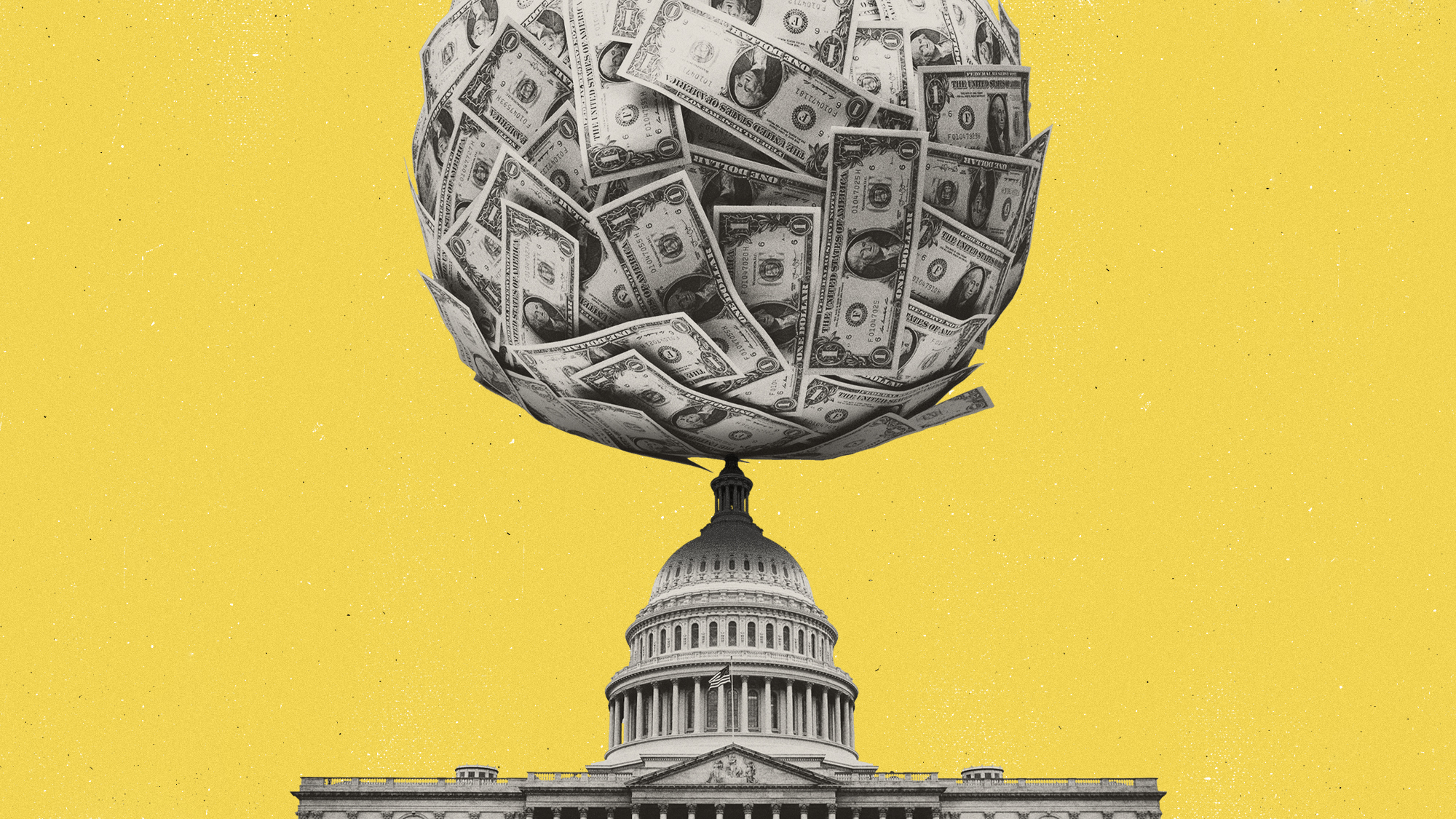 Will Harris or Trump fix the national debt?
Will Harris or Trump fix the national debt?Today's Big Question Both candidates have big spending plans
-
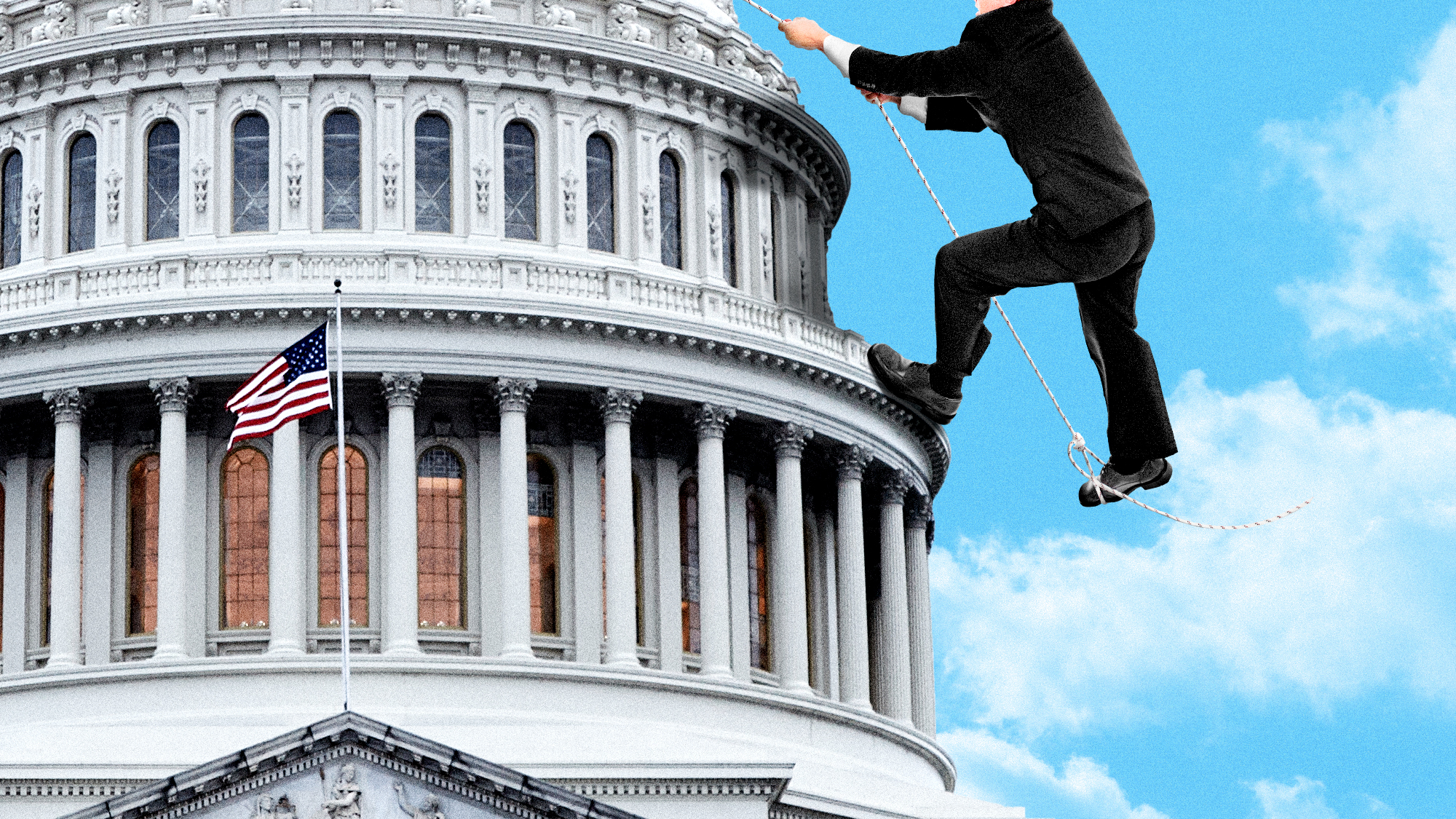 Why are Republicans leaving Congress?
Why are Republicans leaving Congress?Today's Big Question GOP dysfunction puts the House majority at risk
-
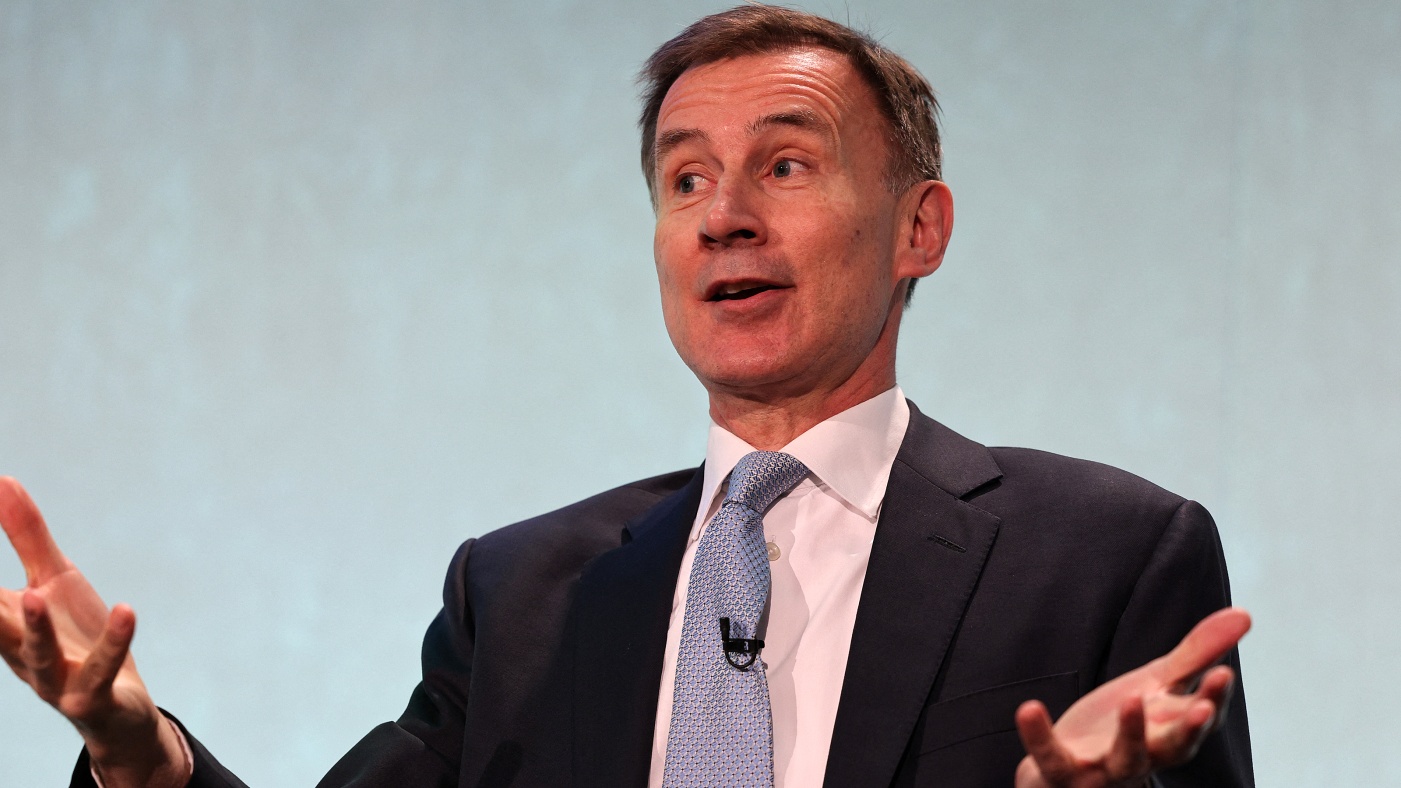 Fiscal headroom: can the UK afford more tax cuts?
Fiscal headroom: can the UK afford more tax cuts?Today's Big Question Lower borrowing costs could give the Chancellor more room for manoeuvre in upcoming Budget
-
 'Elections should be — and often have been — clarifying'
'Elections should be — and often have been — clarifying'Instant Opinion Opinion, comment and editorials of the day
-
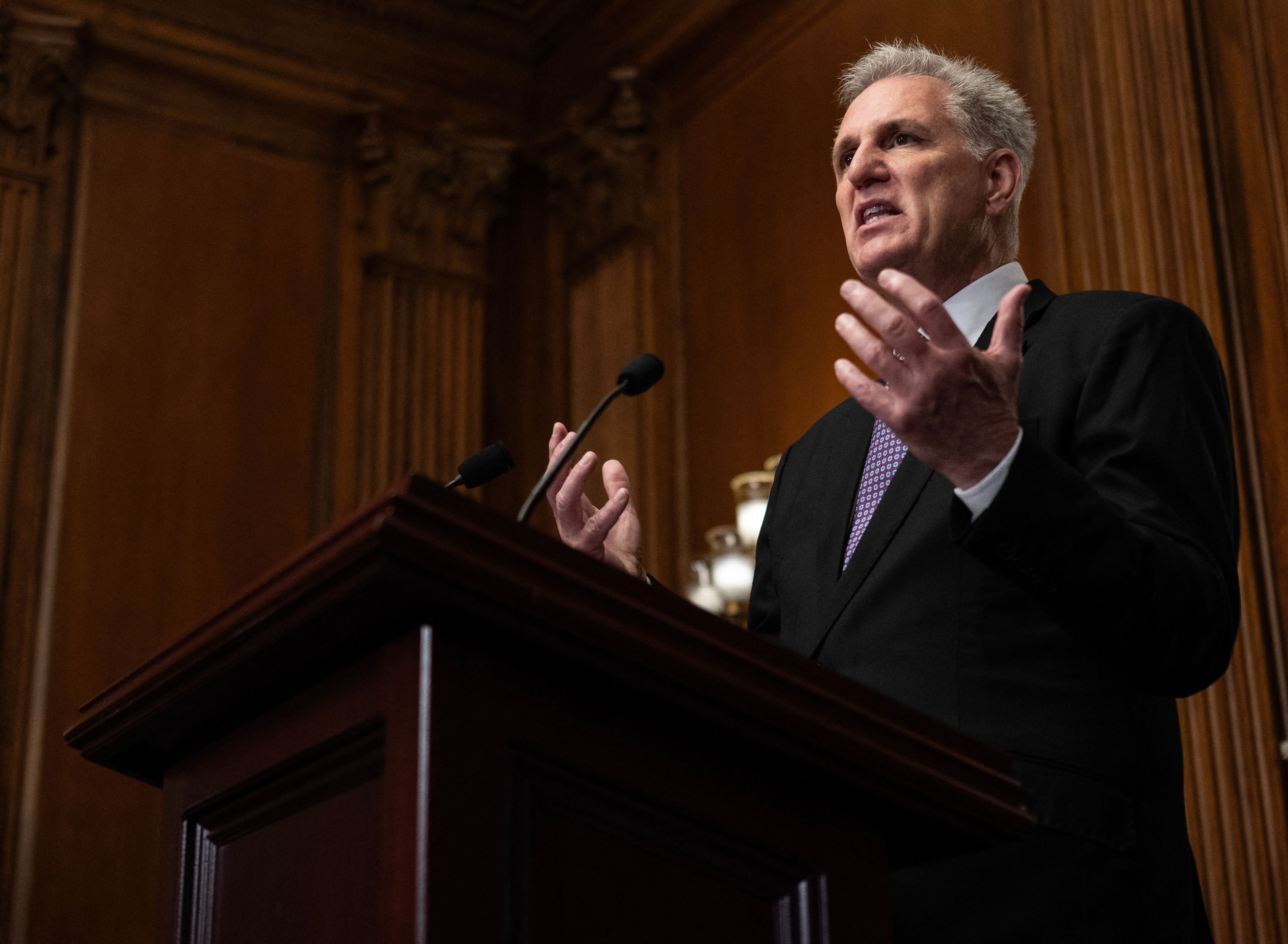 Kevin McCarthy let the House win
Kevin McCarthy let the House winThe Explainer A burnt out former Speaker decides it's better to fade away.
